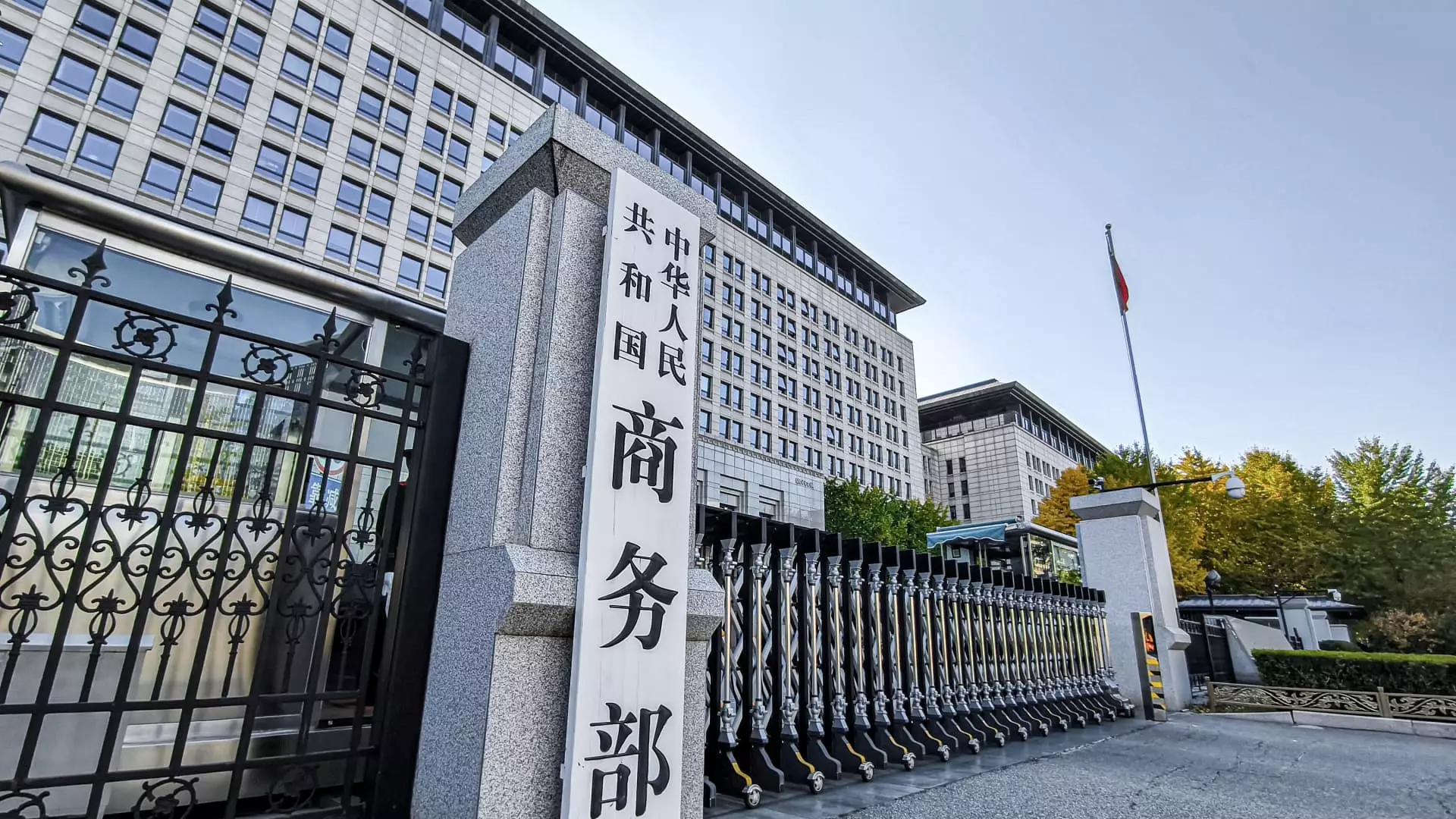In an era where international relations ought to hinge on mutual respect and cooperation, the recent bout of tariff impositions led by the United States stands as a flagrant example of economic bullying. The rhetoric employed by China’s Ministry of Commerce, branding these measures as unilateral and destructive to international trade norms, reflects a growing crisis in global commerce that has far-reaching implications. Such moves are neither noble nor justified; they are symptomatic of a more profound and troubling tendency among powerful nations to wield economic might as a cudgel rather than as a tool for constructive negotiation.
The Ripple Effect: Allies and Adversaries React
President Donald Trump’s implementation of significant tariffs—such as an astonishing 34% on Chinese goods and 32% on products from Taiwan—is a stark reminder of imbalance in economic negotiations. The backlash has rippled far beyond China’s borders, eliciting robust responses from other nations, including Canada and South Korea. Prime Minister Mark Carney’s declaration of an unyielding stance against these economic tariffs underscores a collective unwillingness among affected countries to acquiesce to bully-like behavior from the U.S. The reference to ‘fighting with purpose and force’ resonates in a world where tariffs are seen as an affront to national dignity and economic sovereignty.
Conversely, leaders like Australia’s Anthony Albanese, who characterized Trump’s tariffs as a “poor decision,” encapsulate a growing concern among developed nations regarding the U.S.’s diminishing role as a benevolent leader in global trade. While some assert that responding in kind with reciprocal tariffs is crucial, Albanese’s hesitance to enter that fray indicates a strategic choice to navigate the tumult with foresight rather than reactionism. This signals a paradigm shift away from martial economic strategies and toward dialogue and collaboration.
The Danger of Economic Isolationism
The unilateral approach adopted by the Trump administration dangerously teeters on the edge of isolationism, risking not just strained relationships with global allies but also creating a vicious cycle detrimental to both domestic prosperity and international stability. By imposing these punitive measures, the U.S. presents itself as a nation willing to forgo mutual cooperation for short-term gains. This shortsightedness fosters a climate of distrust and retaliation, breeding a trade war where ordinary citizens end up as collateral damage. Economies are interconnected; a blow to one can send shockwaves through the entire global network.
Moreover, as various nations grapple with the implications of these tariffs, it becomes evident that the ultimate goal of fostering a fair trade environment is being sacrificed at the altar of protectionism. The loud discontent expressed by various nations signifies a collective awakening against practices that undermine equitable economic exchanges. A more judicious approach, rooted in compromise and diplomacy, is not just preferable—it is essential for sustaining a world order that supports the mutual benefit of all involved parties.
Looking Ahead: A Call for Constructive Dialogue
It is vital that countries, particularly those impacted by unilateral tariffs, band together in solidarity to foster an atmosphere where dialogue can flourish. What the world needs now is not more division, but an acknowledgment that cooperation is the bedrock of modern economic relations. For any nation, especially one as economically influential as the United States, to act as a global bully only serves to diminish its standing in an increasingly multipolar world.
Striking a balance between national interests and international obligations will take effort and goodwill. The prospect of re-establishing healthy trade relations hinges not on threats and retaliatory workarounds but rather on open channels of communication where solutions can be sought collectively.

Leave a Reply